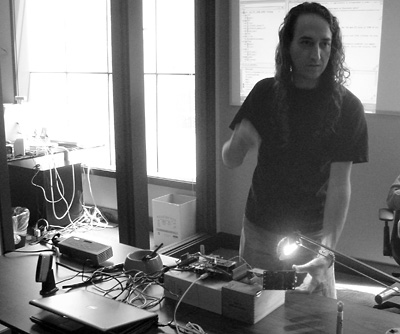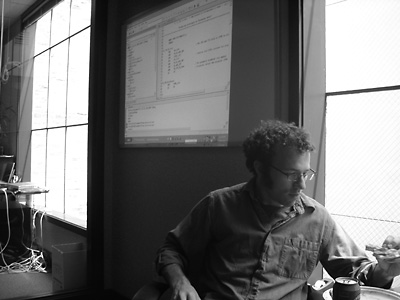People who build great companies start with a very different motivation. They want to make “meaning”, not just money. They want to improve the quality of life, right a wrong, or prevent the end of something good.
Hire “infected” people. Look for love of product or idea more than educational credentials. Hire people better than yourself.
From The Ten Commandments of Successful Entrepreneurs by Guy Kawasaki
In mid-March, Adam sent the following email out to the local Mac development list XCoders:
Howdy XCoders,
We are looking for a few great coders to join our team in Pioneer Square. We need your help creating two important things:
1. A company where we can’t wait for Monday to roll around each week because we love the work we are doing and enjoy working with one another.
2. A set of technologies that will change the way that people relate to paper documents.
The skills we are look for include:
– The ability to create killer-apps that change peoples lives
– Experienced with Mac, web and / or open source technologies
– Collaborative and engaging team players
Check out our web site (www.exbiblio.com) for more specific job descriptions and send me an e-mail if you’d be interested in joining our team.
Thanks!
Adam Behringer
Exbiblio
I had just joined another great company, so I wasn’t looking for yet another job, but the “Monday” bit sounded sincere, and the technology that the Exbiblio site talks about is fascinating and personally interesting to me (I had “invented” content-based addressing on the Web myself, but I hadn’t made the connection to paper), so I decided to meet these people, and it was love at first sight (sorry Good).
I especially like the bit in the statement of corporate values from the Web (posted on the front office door as well) that talks about technology:
“We will remember that technology can create value in society, but that technology by itself is valueless.”
“We will focus on creating value in the world, not capturing value from the world.”
“We will leave beauty in our wake.”
It reminds me of a big difference I see in companies today in their approach to product design.
Some companies claim to have no personal stake in the products that they build, and strive to be perfect mirrors of their customers’ needs. They focus on their customers first, and the products follow. Other companies, often led by strong visionaries, portray a love of products, quality and excellence. They focus on the products first, and the customers follow, and usually end up loving them.
There is a big difference between creating good enough products for money, and creating products because you want to see them come to life. There’s nothing wrong with solving real problems in as economically feasible a fashion as possible. In fact, it’s difficult and worthy of admiration. But, I do believe that it is often possible to do a lot better. Quentin Stafford-Fraser has an interesting quote on the subject.
One way to look at the difference is to observe the long-term cycles in business. Clayton Christensen, for example, in Innovator’s Solution, talks about how new ideas disrupt existing products and business models, often using highly proprietary, custom solutions, and then gradually become commodities, and become built from commodity pieces, and then are disrupted by a new idea.
People who love products (be they gadgets, services or outcomes) are the ones who will innovate in the large, but innovation is riskier than optimizing existing products and processes, and is not a consistently winning strategy if one’s focus is money as a means to other, unspecified goals. But it is a winning strategy if the products are the end, and the money the means.
By Claes-Fredrik Mannby








